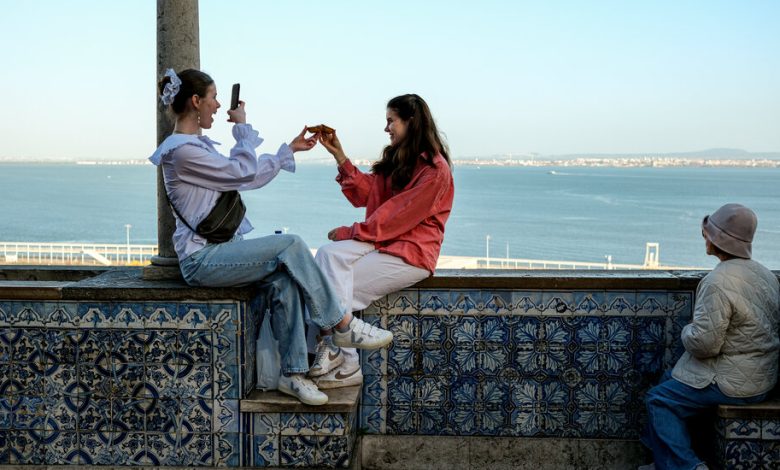How Those Colorful Azulejo Tiles Are Made

There are some crafts that Portugal is especially known for: pavements and plazas patterned with black and white stones, and azulejos, often referred to as tiles, that cover buildings, often in seas of blue and white.
Such artistry is being honored this year during the Journées Européennes des Métiers d’Art, or European Crafts Days, from today through April 7, with programs that give an inside look at how the work is done. Portugal’s artisanal heritage will be celebrated on April 7 when ateliers around the country devoted to woodwork, weaving, jewelry, bookbinding and painting tiles will open their doors to the public.

The facade of the old Viúva Lamego factory, in the Intendente neighborhood of Lisbon.Credit…Daniel Rodrigues for The New York Times
Be careful, though, if speaking with Alexandre Pais, director of the Museu Nacional do Azulejo in Lisbon.
“Azulejos are not tiles,” he said emphatically, walking through the halls of the palace turned convent turned museum that now houses a collection of some 17,000 azulejos displayed chronologically as visitors move from room to room.
“Azulejos have been around more than 500 years,” Dr. Pais said. “They are always changing, always adapting.” To prove his point he singled out a blue and white mural on the wall of Mickey Mouse “from Walt Disney’s office in Lisbon.” Whether it’s the subject matter, the colors or the materials used, azulejos keep pace with the times.




